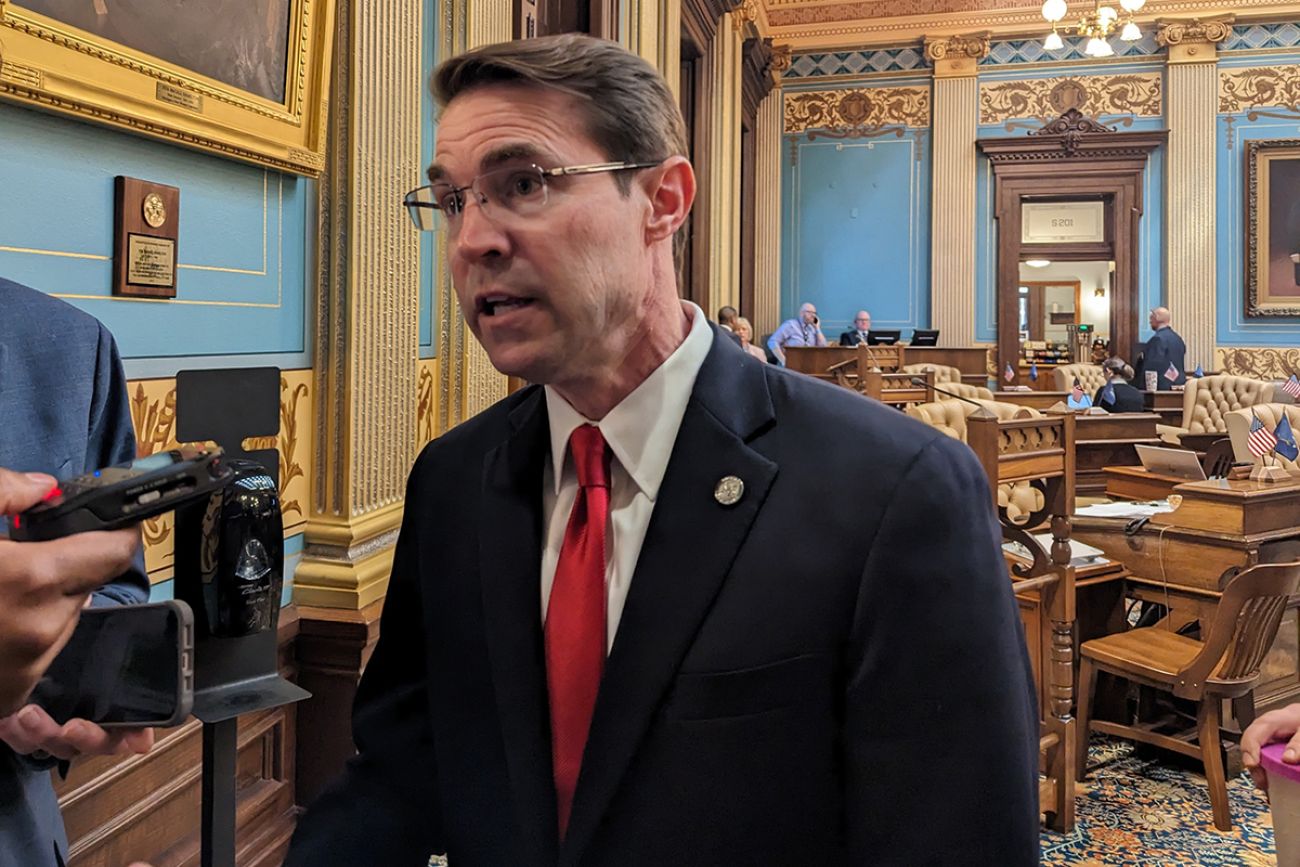Michigan’s environmental rules could be stricter than national ones under bill

- Democrats begin reversal of Republican-backed limits on environmental regulations
- Environmental advocates support the change, but want more action from Democrats on climate issues
- Industry groups worry the move is bad for business
Michigan’s Democratic-majority Senate moved Wednesday to reverse a law limiting state agencies’ ability to set rules stricter than federal standards, a 2018 Republican policy long loathed by environmental advocates.
The “no stricter than federal” law enacted during the final days of Republican Gov. Rick Snyder’s second term prohibits state agencies from setting rules more stringent than those set by the feds, part of a push by Republicans at the time to shrink administrative powers.
Under the law, regulators can only get around that prohibition in an emergency, or if a state agency director finds a “clear and convincing need.”
Related:
- Big money rolls into Michigan Democrats from unions after Right-to-Work repeal
- Michigan Senate lawmakers spar before passing $21 billion school aid budget
- Michigan’s new roads plan: More money for big counties (that vote Democratic)
Environmental groups and legislative Democrats say the law undercuts state regulators’ ability to address pollution issues in a state with significantly more water resources than most.
But business and agricultural groups fear that going beyond federal standards could discourage investment in Michigan and cause uncertainty for companies subject to regulations.
Doing away with the ban was named a top priority by Democratic leadership after the party took majority control of the Legislature, and the Senate on Wednesday passed the repeal measure 20-18 over objections from Republicans. The legislation needs approval from the House and Gov. Gretchen Whitmer to become law.
Sen. Sean McCann, a Kalamazoo Democrat and the bill’s sponsor, said the current policy “is poorly defined, confusing, and … prevents Michigan from acting swiftly to address environmental and public health crises.”
McCann cited the state’s response to PFAS contamination as one example where the existing law made it more complicated to limit the toxic compounds in residents’ drinking water.
Since the former Wurtsmith Air Force Base became Michigan's first PFAS site in 2010, the list of known and likely sites of PFAS contamination has ballooned to 273 as regulators pursue investigations across the state.
Gov. Gretchen Whitmer in 2019 directed the state Department of Environment, Great Lakes and Energy to limit the toxic compounds in residents’ drinking water. That was only possible because of a loophole in Michigan’s “no stricter” law: While the law stops Michigan regulators from exceeding federal drinking water regulations, it is silent on what state regulators should do about chemicals like PFAS that the feds do not regulate.
“Every state has unique needs — our Great Lakes state is certainly no exception,” he said, arguing that federal standards should be considered the floor, not the ceiling.
Republicans defended the existing law during Wednesday’s floor debate, arguing that the Legislature should have the last word on stricter-than-federal rules — not unelected state regulators.
Michigan residents “look to us to write their laws…not to just give it away to bureaucrats,” said Sen. Ed McBroom, R-Vulcan.
Environmental groups cheered the repeal’s Senate passage, but said lawmakers need to do more to address pollution, climate change and shift the state towards more renewable energy resources.
“Repealing bad laws must only be the beginning,” Sean McBrearty of the environmental group Clean Water Action said in a statement. “After 40 years of inaction, the people of Michigan, our water, and our health can’t wait any longer for lawmakers to be proactive and enhance the environmental protections on which we all rely.”
See what new members are saying about why they donated to Bridge Michigan:
- “In order for this information to be accurate and unbiased it must be underwritten by its readers, not by special interests.” - Larry S.
- “Not many other media sources report on the topics Bridge does.” - Susan B.
- “Your journalism is outstanding and rare these days.” - Mark S.
If you want to ensure the future of nonpartisan, nonprofit Michigan journalism, please become a member today. You, too, will be asked why you donated and maybe we'll feature your quote next time!




